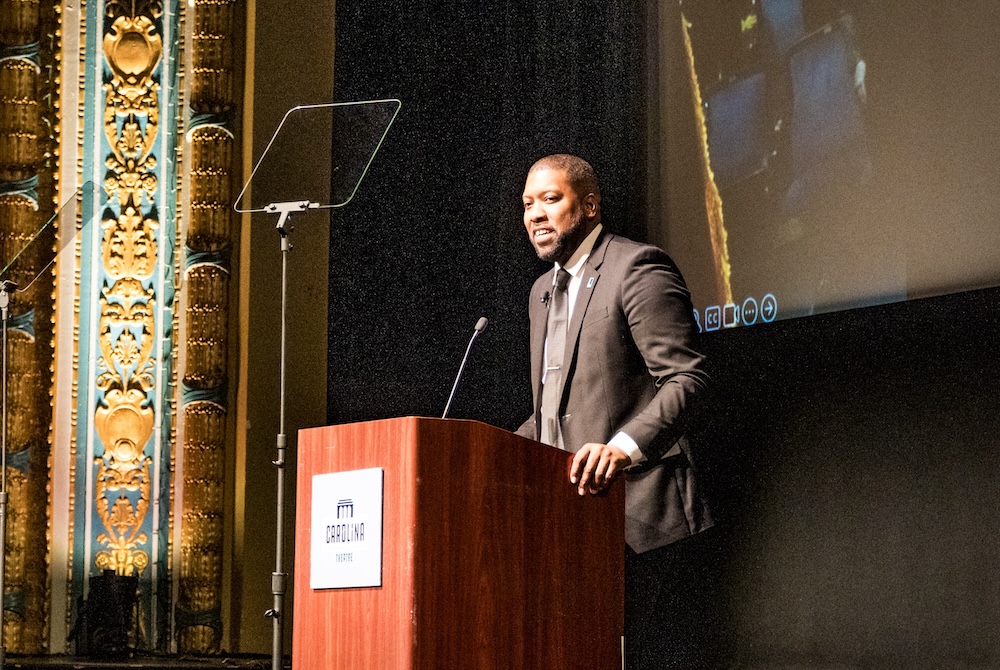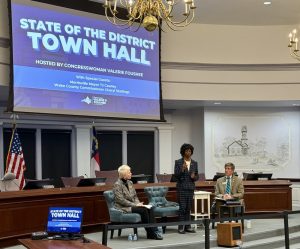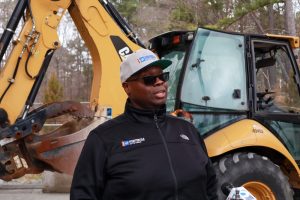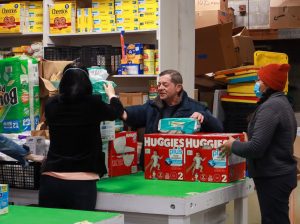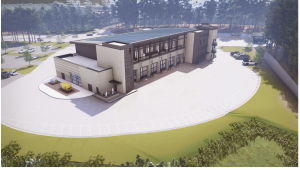On Tuesday, hundreds meandered through the rainbow-lit hall of the Durham Convention Center, serenaded by a jazz band as they passed tables headed by different city departments and brimming with swag: lip oils, pamphlets, candy, bracelets.
The crowd then hustled into a dark Carolina Theatre, where the three-man group The Southern Brothas entered dressed in suits and black sunglasses, rapping “DID (Durham Is Dope)” before Mayor Leonardo Williams joined them, making Durham’s signature “bull horn” gesture with his fists.
It was Williams’ second time delivering the “State of the City” address. On the heels of last year, when he unveiled the slogan “Durham is dope,” he was once again determined to make it an occasion for celebration, music, and local pride.
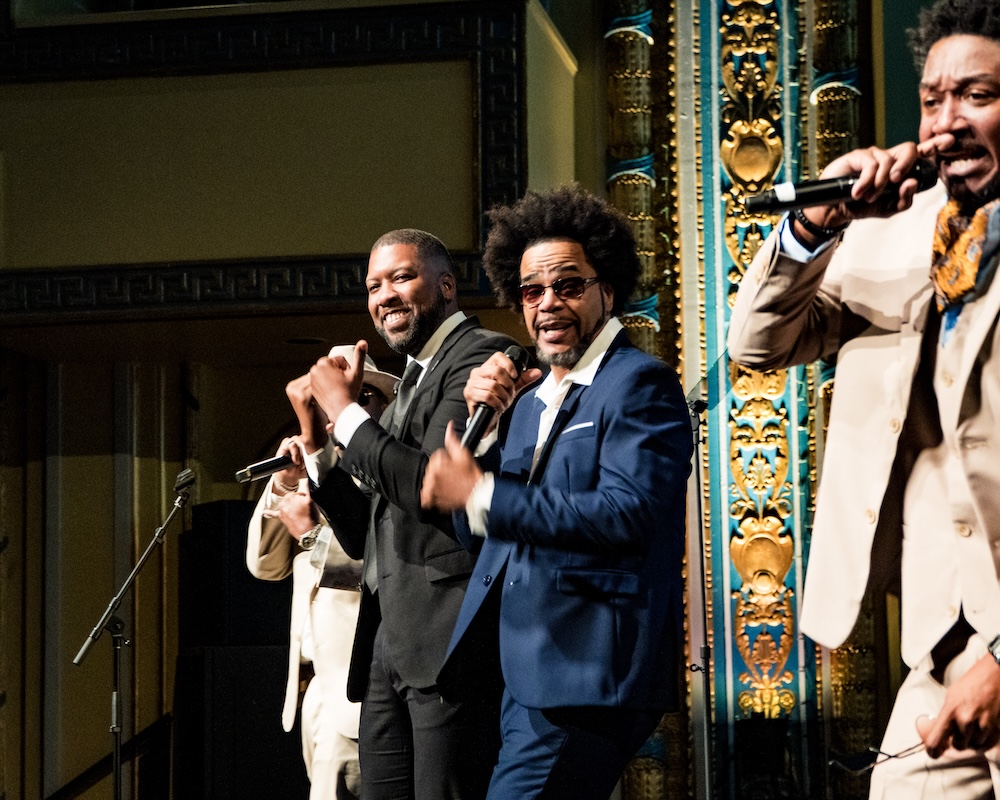
Taking the podium, the mayor, teary-eyed, thanked Durham’s elected officials and city employees for their commitment to the city.
Williams reflected on the progress made on last year’s “State of the City” promises and outlined new initiatives to improve public safety, and efforts towards what Williams calls “affordable living.”
He praised the achievements of Durham’s alternative policing program Holistic Empathetic Response Team (HEART) which he said hit a milestone of 25,000 people served as of December. Williams mentioned that the program, developed as an alternative to traditional policing, has garnered national attention.
Williams also emphasized the disproportionate risks young Black boys face, including risks from gun violence. He commended a partnership between the city and Duke Health that treats gun violence as a public health issue, aiming to reduce the number of Black men and boys who end up in emergency rooms.
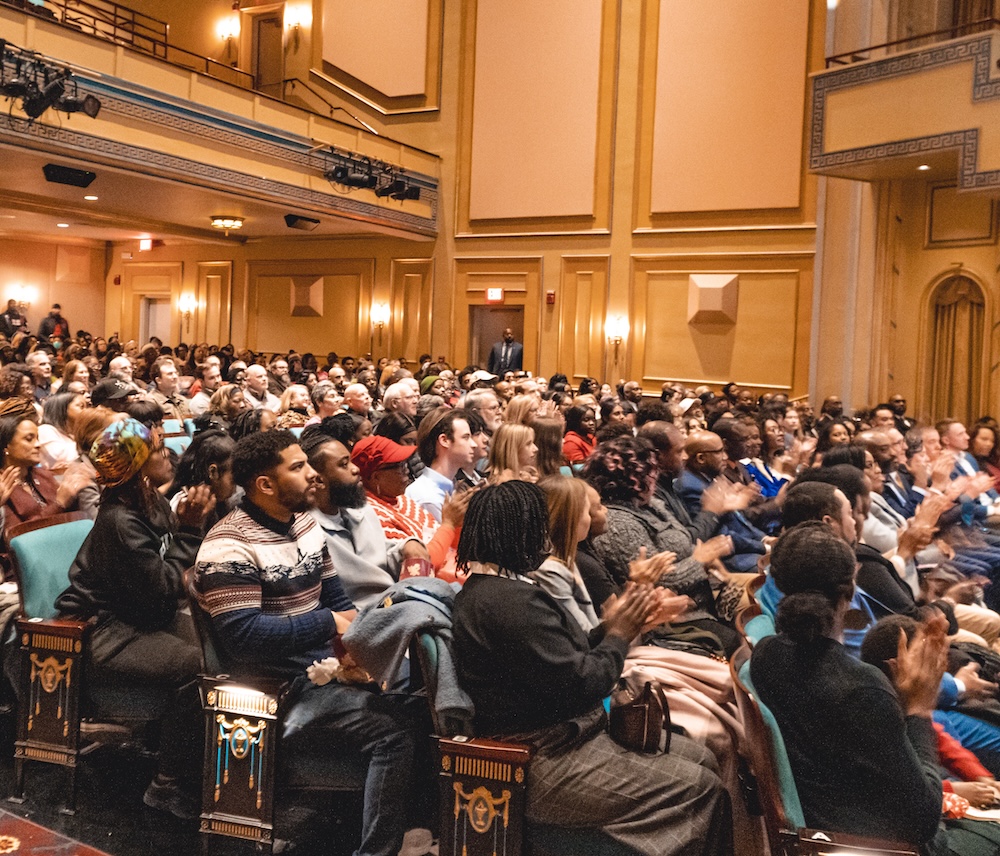
“Thoughts and prayers is just not enough…” Williams said. “Durham doesn’t need a thirty-page study to tell us what we already know. What Durham needs is action. Durham needs implementation. And more importantly than all, Durham needs results.”
Williams touted the city’s accomplishments in creating affordable housing, noting that his administration had placed over 1,000 unhoused people in permanent housing. He described a concept he calls “affordable living,” a “holistic approach” to affordable housing that addresses the “root causes” of housing insecurity.
He pointed to his “Mayor’s Personal Finance Playbook,” an ongoing series of programs and free events that teach community members about financial literacy and overcoming historical economic disparities. Williams plans to lead a “General Wealth Saturday” on these themes at the River Church on March 8.
Williams harped on the “spirit of collaboration” that he believes Durham embodies, emphasizing collaboration between the city and local universities. He praised the Duke Center of Community Engagement, and Duke, Durham Tech, and Durham Public Schools’ establishment of an early college program focussed on healthcare. He also celebrated North Carolina Central University’s recently announced partnership with Google to create an AI institute.
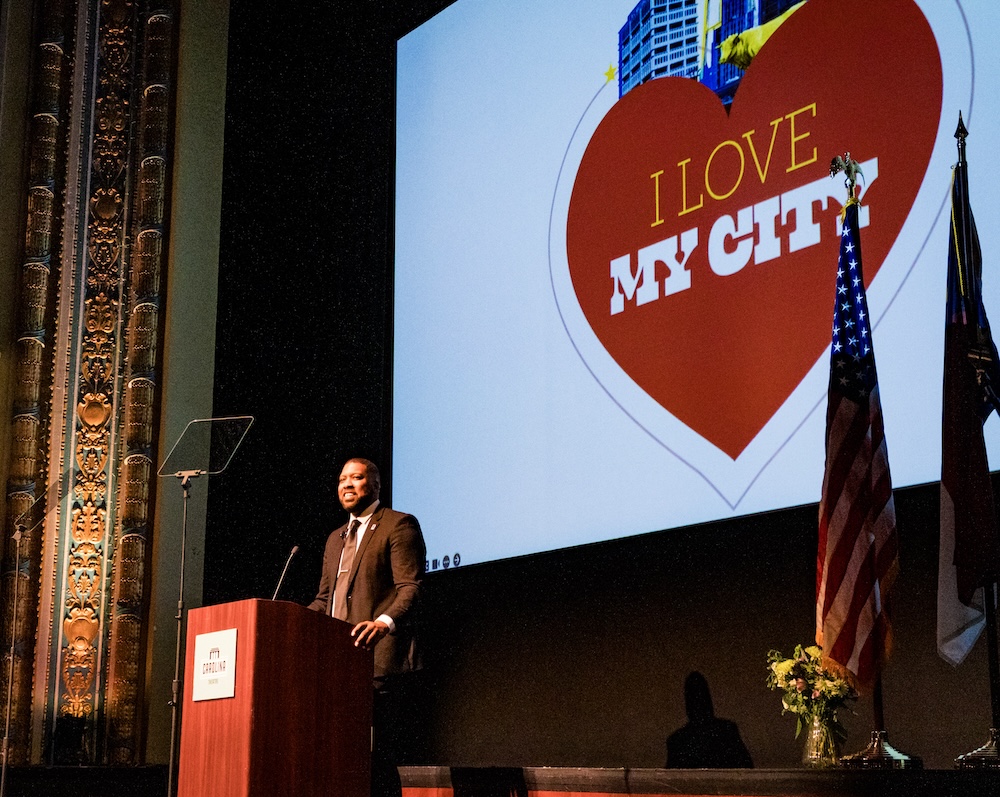
The mayor also revisited his 2024 promise to invest in the Fayetteville Street Corridor, announcing that the city has since invested $10 million into its redevelopment. He also praised the Bull City Future Fund, a project centered on youth development led by United Way of the Greater Triangle Area and the Triangle Community Foundation. The fund recently hit an important fundraising milestone, securing $500,000 in contributions.
“To the people and places historically underserved by our city… your time is now,” he said.
Williams also honored the first Black mayor of Durham, the late Chester Jenkins, declaring Feb. 18 as “Chester Jenkins Day.” Williams dubbed Jenkins a “fearless leader” as he invited Jenkins’ widow to the stage and handed her a vibrant bouquet of flowers.
At the end of the address, Mayor Williams exalted Durham’s “cultural identity”: resilience.
“Resilience is baked into the very fabric of this city,” Williams said.
As he spoke, an image appeared on the screen behind him: skyscrapers, the Lucky Strike tower, and a golden bull resting atop a big red heart. Inside the heart were the words, “I LOVE MY CITY.”
He had the audience proclaim their love too, repeating after him, “I love my city.” The lights came on, and four singers and a guitar player emerged from the wings in black Durham sweatshirts, singing “I love my city” along with the crowd. The audience continued singing and formed a sea of phone flashlights, the mayor invited his wife on stage, and the address ended in celebration and song.
“It’s time for Durham’s next renaissance, and I hope you’re ready for it,” Willaims said. “It’s coming.”
Above: Mayor Leonardo Williams, delivering his second ‘State of the City’ address. Photo by All Kibria — The 9th Street Journal
Halle Vazquez

